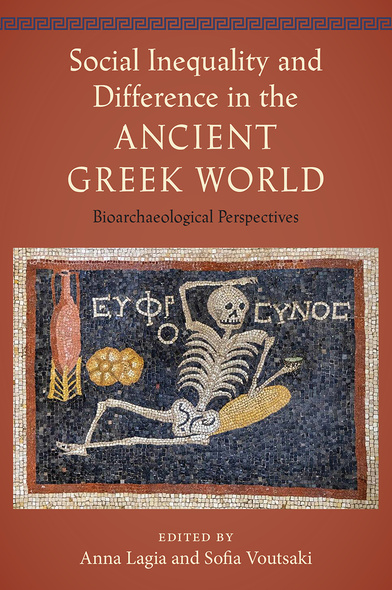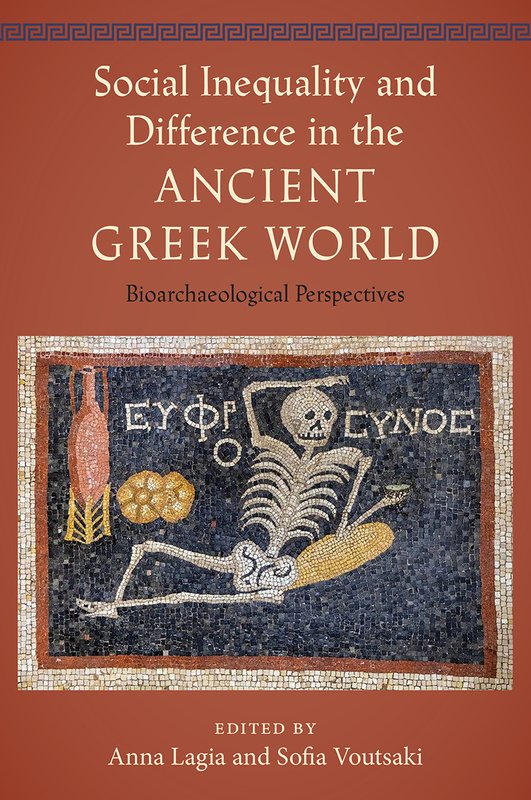
Social Inequality and Difference in the Ancient Greek World
Bioarchaeological Perspectives
Exploring the relationship between health and inequality in the societies of ancient Greece
In this volume, bioarchaeologists, osteologists, archaeologists, and paleopathologists examine the ways social inequalities and differences affected health and wellbeing in ancient Greece. Although the ancient Greek civilization is often associated with the ideals of democracy and social equality, the region was characterized by pervasive divisions. Moving beyond elitism and idealization, this book focuses on health-related disparities and difference.
Case studies cover a wide temporal range—from the eleventh century BCE through the sixth century CE, a period not usually examined in bioarchaeological studies of the region—and geographical areas including city-states in the Greek mainland, the Aegean islands, the Ionian coast, Albania, and Southern Italy. Comparing health-related data across social groups and sociopolitical systems, contributors explore the relationships between colonists and Indigenous communities, strategies of inclusion and exclusion in mortuary practices, and the impact of urbanization and Romanization on health, diet, and growth. This book also discusses methodological questions such as the challenges posed by poor skeletal preservation, small sample sizes, and incomplete or legacy data.
With a focus on marginalized groups including ordinary people, women, children, and enslaved workers, Social Inequality and Difference in the Ancient Greek World shows how bioarchaeology can dialogue with the disciplines of archaeology and ancient history to explore subjects such as health, inequality, ethnicity, age, and gender. This book opens a new avenue for addressing questions concerning living standards in the ancient world.
Contributors: Hannah Liedl | Lukas Waltenberger | Britney Kyle | Dimitra Ermioni Michael | Victoria Sabetai | Carrie L. Sulosky Weaver | Anna Lagia | Elena Vlachogianni | Sandra Garvie-Lok | Jane Buikstra | Reine-Marie Bérard | Christina Papageorgopoulou | Efthymia Nikita | Aliya R. Hoff | Eleni-Anna Prevedorou | Sofia Voutsaki | Lisa Steige | Sam Cleymans | Paraskevi Tritsaroli
A volume in the series Bioarchaeological Interpretations of the Human Past: Local, Regional, and Global Perspectives, edited by Clark Spencer Larsen
“Avoiding an Athenocentric approach, this volume will be a very welcome source. It should serve to encourage historians of the period and region to more fully engage with the bioarchaeological record and the unique perspectives it offers on questions of population relationships, disease, and regionality when considering inequality and social differentiation.”—Linda Fibiger, coeditor of The Cambridge World History of Violence: Volume 1, The Prehistoric and Ancient Worlds
“This volume on the many different areas of bioarchaeological research focused on Greece fills a gap in the literature. It will be beneficial for both archaeologists and bioarchaeologists working in the region.”—Susan Kirkpatrick Smith, Kennesaw State University
Anna Lagia is a bioarchaeologist with experience in the study of historic and prehistoric funerary contexts in Greece. Sofia Voutsaki, professor of Greek archaeology and director of the Groningen Institute of Archaeology at the University of Groningen, is coeditor of Ancient Monuments and Modern Identities: A Critical History of Archaeology in Nineteenth and Twentieth Century Greece.




